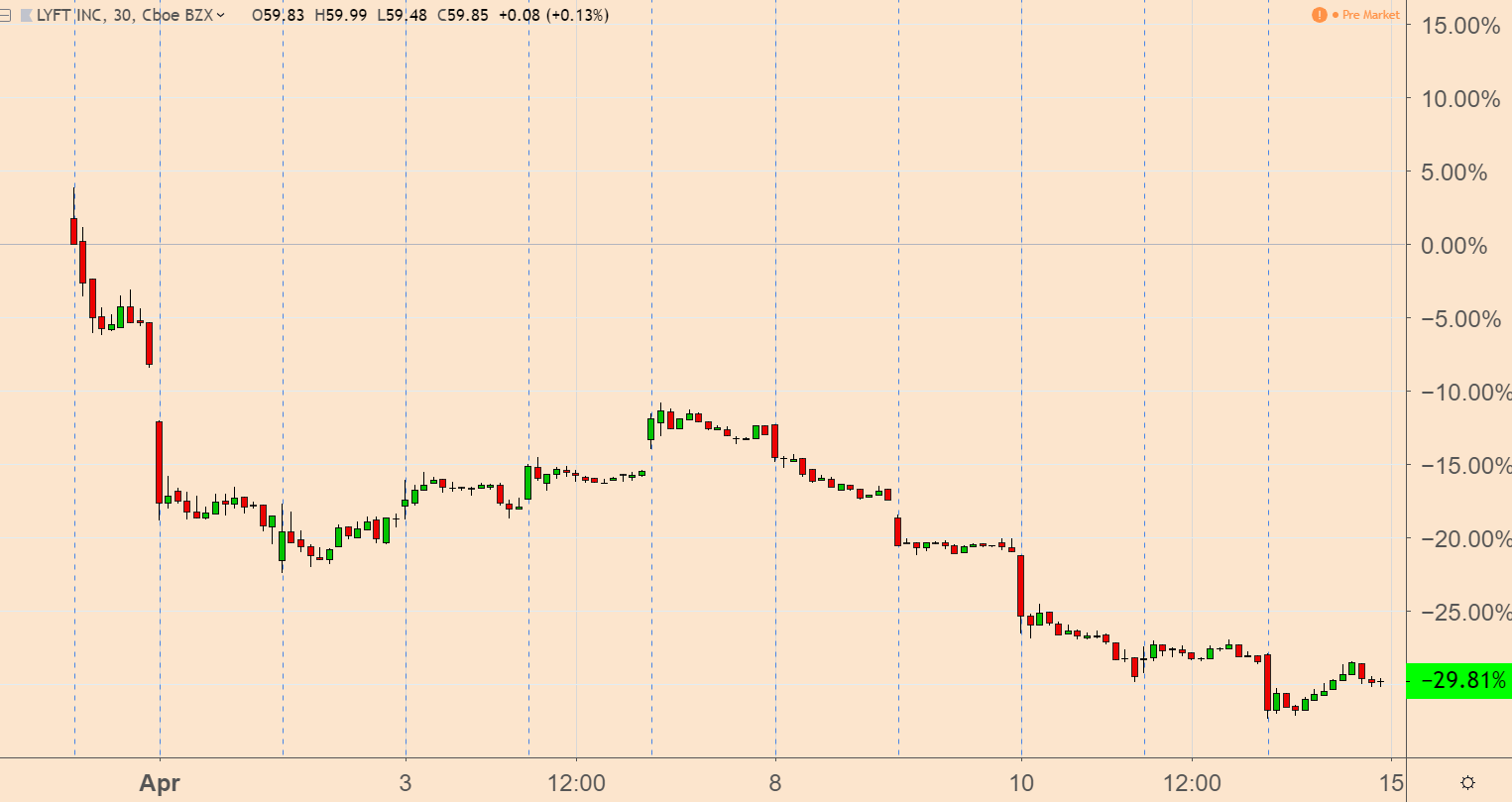Is it just me, or are things starting to feel awfully 1999 around here?
That year and early 2000 were a wonderful time for the stock market.
I remember feeling bulletproof myself. If you invested only in the hottest, newest stocks — those with terrible balance sheets and no hope of profits — you did great.
With the rising level of initial public offering (IPO) hype, it’s starting to feel that way once again.
Uber’s upcoming IPO and Lyft’s recent offering are good examples.
Neither company has a history of profitable operations. According to estimates, Lyft lost nearly $800 million each of the last three years. It’s on track to lose $1 billion more this year and next.
But investors couldn’t get enough of the stock when it hit the market a few weeks ago:
Lyft’s Post-IPO Drop

(Source: TradingView.com)
The result? A $23 billion first-day valuation — and since then, a 30% decline in the stock.
Both should serve as warning shots to all of us about the increasingly bubbly nature of the markets lately.
A Record-Breaking Year for IPOs
Whenever investors get really enthused about IPOs, it tends to herald the end of bull market eras.
That’s why 1999 and 2000 are worth noting here. IPOs raised a record $93 billion and $97 billion in those years.
According to researchers at Renaissance Capital, the IPO market has since never come close to raising $100 billion in a single year.
But with this year’s offerings for Levi’s ($14 billion), Lyft — and soon Uber and a slew of other high-profile companies like Palantir, GE Healthcare and WeWork — 2019 may go down as a record-breaking year for IPOs.
Meanwhile, an award-winning 2009 study by Kevin Lapham at Ned Davis Research underscores why it’s worth watching IPOs in tech and other sectors. They give us clues about the market’s overall health.
- A record crop of IPOs shows investors’ high spirits. They’ll pay top dollar to own the next hot stock, no matter its fundamentals.
- High-profile IPOs tend to pull buyers’ interest away from other companies in the same sector, weakening their stocks.
- Ultimately, the flood of IPOs draws in all available buyers until “crowd opinion reaches an extreme, and the focus increasingly turns to profit-taking.”
Presuming I’m right, that doesn’t mean the market collapses in a matter of days or weeks. The worst bear markets take months to show themselves.
It’s sort of like the old nursery tale about the Big Bad Wolf — luring in unsuspecting investors until there’s no escape from the carnage.
Your goal?
Don’t get eaten like Little Red Riding Hood’s grandmother.
Kind regards,

Jeff L. Yastine
Editor, Total Wealth Insider




